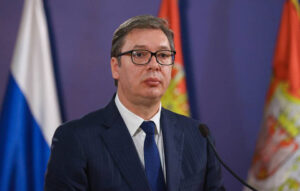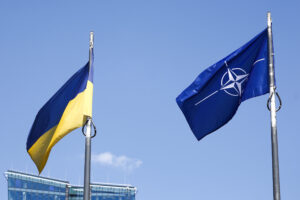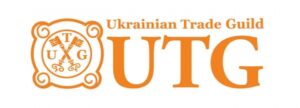
Prices for sunflower seeds on the domestic Ukrainian market fell by more than 1,000 UAH/ton last week and amounted to about 26,000-27,600 UAH/ton (CPT-enterprise), which is the minimum level since the beginning of the 2025/2026 season, and only occasionally reached 28,000-28,300 UAH/tonne CPT, according to the information and analytical agency “APK-Inform”.
Analysts specified that indicative demand prices started at 25,000-25,400 UAH/tonne (CPT).
Experts explained that the slowdown in oilseed trade was significantly slowed down due to constant rocket and drone attacks on the ports of Odesa, which resulted in a decrease and, in some cases, suspension of product unloading.
According to their information, the shelling of seaports has increased the risks of storing oil in ports. As a result, a number of factories are suspending operations because they either do not have storage tanks at their facilities or they are already full.
In addition, there has been a significant decline in raw material prices on the market due to uncertainty about the future development of the sector.
“This has led to a reduction in the supply of sunflower seeds, which also coincided with the traditional lull during the holiday period, as a result of which market activity will remain weak in the coming weeks,” APK-Inform predicts.

The debt of the Ukrainian population for housing and communal services (HCS) in the third quarter of 2025 decreased by 5.4% compared to the previous quarter and amounted to UAH 100.8 billion. According to data from the State Statistics Service (SSS), Ukrainians paid a total of UAH 48.5 billion for housing and communal services in July-September 2025, which is 6.4% more than the amount charged, UAH 45.6 billion.
The debt for the reporting period for the supply of heat and hot water amounts to UAH 33.1 billion, the supply and distribution of natural gas – UAH 27.9 billion, the supply of electricity – UAH 16.5 billion, centralized water supply and sanitation – UAH 10.4 billion, apartment building management – UAH 9.5 billion, and household waste management – UAH 3.2 billion.
The highest level of debt for housing and communal services was recorded in Dnipropetrovsk (UAH 8.5 billion), Donetsk (UAH 4.3 billion), Poltava (UAH 3.2 billion), Kharkiv (UAH 1.9 billion), Kyiv (UAH 1.5 billion), Odesa (UAH 1.1 billion), Lviv (UAH 1 billion) regions and in Kyiv (UAH 2.8 billion).

According to Serbian Economist, Serbian President Aleksandar Vucic said that early parliamentary elections will be held in the country in 2026.
Speaking to supporters outside the National Assembly building, Vučić said that the authorities had agreed to the protesters’ main demand:
“We have accepted their main demand, and soon, next year, we will go to the polls. Only they will not be so happy when the votes are counted. We are going to defeat them everywhere in Serbia,“ he said.
The Tanjug news agency specifies that the president separately emphasized the need to comply with democratic rules and that ”the country should be ruled by those who receive the majority, not those who think it is better to set fire to buildings.”
No specific date has been set for early parliamentary elections yet. Vučić spoke of voting “next year” and made it clear that he expects a campaign in which the ruling Serbian Progressive Party (SNS) will try to confirm its dominance at the national level.
The last parliamentary elections in Serbia were held early in December 2023; at that time, Vučić’s party and its allies retained their majority in the Skupština amid protests by the opposition, which challenged the fairness of the vote.

Issue No. 2 – December 2025
The purpose of this review is to provide an analysis of the current situation on the Ukrainian currency market and forecast the hryvnia exchange rate against key currencies based on the latest data. We analyze current conditions, market dynamics, key influencing factors, and likely scenarios.
Analysis of the current situation on the currency market
International context
The second half of December 2025 was influenced by the third cut in the US Federal Reserve’s key policy rate this year, as well as expectations of a planned rate cut in the new year 2026. Most analysts believe that the latest key macroeconomic data support expectations that the Fed will continue to cut rates in 2026. Inflation in the United States fell more than expected to 2.7% year-on-year, while unemployment rose to 4.6%. These statistics allow the Fed to plan further rate cuts. The next meeting of the Fed Committee will take place in late January, and it will be known whether the rate cuts will take place at the beginning of the year or whether the Committee members will decide to postpone the next stage of monetary policy easing to March.
Meanwhile, the media was stirred up by the statement of the Donald Trump administration regarding its expectations for US GDP growth of 3% in 2026. Joe Lavorgna, an adviser to US Treasury Secretary Scott Bessent, noted that if the economy continues to grow by 3% next year due to increased supply, this will mean a decline in inflation. In his opinion, the Fed can continue to cut rates, and even said that the Fed should cut rates. Currently, the US is in a bit of euphoria over the fact that GDP for the third quarter was 4.3%, as consumer spending, which accounts for 70% of growth, and exports have both increased. Donald Trump also said that he expects the next Fed chairman to cut interest rates if the economy is doing well. It is currently known that the Fed has planned one rate cut in 2026, but in the end, everything will depend on the position of the new Fed chairman and the receipt of new statistics on inflation and the US labor market. It is possible that the rate will be cut twice, depending on the rate of real economic growth. Analysts also believe that any sharp decline in the artificial intelligence boom will require further rate cuts, as artificial intelligence has contributed to the lion’s share of GDP growth over the past year, both directly through business investment and indirectly through the rising stock market, which has stimulated consumer spending.
As expected, the key policy rate cut affected the behavior of the EUR/USD pair, and the dollar is weakening despite positive signals about the growth rate of the US economy. At the end of December, the rate was above $1.1772, so it continues to test new levels – closer and closer to the $1.1800 level previously predicted by analysts. In the future, the dollar is expected to weaken against the euro, in particular against the backdrop of central bank policy.
As for the stability of the euro, it is clear that the eurozone has managed to overcome the effects of Trump’s new tariffs faster and better than expected. Growth in Europe remains steady, with inflation hovering close to the ECB’s 2% target. At the end of 2025, the European Central Bank left its key deposit rate unchanged at 2%. According to the ECB, the eurozone’s GDP growth for the year will be 1.4%, compared to the previous estimate of 1.2%. For 2026, GDP growth is projected at 1.2%, and the eurozone economy will grow by 1.4% in 2027.
Domestic Ukrainian context
While in the first half of December, the hryvnia remained in the range of 42.26-42.33 UAH/USD (official exchange rate), in the second half of the last month of 2025, there were multidirectional fluctuations, when on December 18, there was a clear weakening of the hryvnia – the average value on the interbank market reached 42.40 UAH/USD, and the official exchange rate was 42.34 UAH/USD. However, in the following sessions of December, the market leveled off, in part due to the participation of the National Bank of Ukraine in the auction, and the hryvnia strengthened: the official exchange rate returned to below 42 UAH/USD. In October, the NBU sold $2.9 billion in foreign currency, and in November it sold $2.88 billion. It is likely that in December, interventions will also be no less than in November. In total, the NBU sold $34.6 billion on the market since the beginning of the year and through December 19.
December was a successful month for Ukraine, when it received multibillion-dollar tranches of funds from its partners. In the third decade of December, Ukraine received €2.3 billion under the Ukraine Facility program (the sixth tranche under the program), bringing the total amount of EU financial assistance in 2025 to more than €28.7 billion. The funds received help support the economy and ensure macrofinancial stability.
The NBU discount rate remained unchanged at the end of 2025, remaining at 15.5% per annum. The NBU said that it expects the risks associated with the adequacy and rhythm of external financing to ease, allowing the NBU to start a cycle of key policy rate cuts next year. The NBU’s Monetary Policy Committee believes that the key policy rate will be 12.5% at the end of 2026, but the balance of risks to inflation and the key policy rate trajectory has shifted upward in the wake of the war, so they do not rule out a tighter policy scenario.
Next year is not expected to be easy and predictable for the national currency, which is under considerable pressure in the context of the war due to the great uncertainty about the duration of hostilities and changes in the situation at the front, risks to the energy and industrial sectors in general, and high import needs for equipment, military equipment, and fuel. The trajectory of the exchange rate will depend on many factors, and one of the key ones will be the volume and rhythm of foreign aid inflows.
According to the EU, Ukraine needs $81 billion in additional financial assistance for defense and government operations in 2026. The good news in December was the approval of a €90 billion loan from the EU to Ukraine – the leaders of the EU member states reaffirmed their readiness to help Ukraine ensure financial sustainability in 2026-2027, in particular to cover urgent budgetary, military, and defense needs. The parties agreed to provide Ukraine with a €90 billion loan at the expense of EU borrowings in the capital markets, and Ukraine will repay the loan only after Russia compensates for the damage caused by the aggression.
US dollar exchange rate: dynamics and analysis
General characteristics of market behavior
In the second half of December, the US dollar initially strengthened on the Ukrainian market, but then the trend reversed. As a result, the hryvnia suddenly started to strengthen at the end of the year.
In general, the exchange rate changed in December as follows: on the interbank market, the selling rate at the beginning of the month was at 42.32 UAH/$, on December 18 – at 42.40 UAH/$, but on December 25, there was a pullback to 42.06 UAH/$.
On the cash market, the buying rate in December was in the range of UAH 41.6-42.10/$, and the selling rate was in the range of UAH 42.2-42.55/$. At bank cash desks, the spread between the buying and selling rates remained unchanged compared to November, amounting to UAH 0.45-0.6 per dollar.
Key factors of influence
1. International context. The dollar began to lose ground sharply against the euro as a result of the third Fed key rate cut in 2025, as well as expectations of the next round of easing in January 2026.
2. Ukraine continues to receive assistance from its partners: in the third decade of December, the country received €2.3 billion under the Ukraine Facility program, and the EU agreed on a €90 billion loan to Ukraine.
Forecast.
– Short-term (1-2 weeks): the basic range is 42.15-42.55 UAH/$ with possible multidirectional fluctuations.
– Medium-term (2-3 months): 42.30-43.50 UAH/$. On the international market, the dollar’s weakening will be influenced by the Fed’s monetary policy, i.e. further steps to reduce the key policy rate. In Ukraine, the hryvnia will be affected by factors such as the state budget deficit, the situation at the frontline, gas purchases, imports of energy equipment, and new aid inflows from partners.
– Longer term (6+ months): the depreciation trend will remain dominant, with the NBU’s ongoing interventions keeping exchange rate fluctuations smooth and the exchange rate trajectory flexible. The exchange rate target for the first half of 2026 is UAH 42.6-44.60/$.
Euro exchange rate: dynamics and analysis
General characteristics of market behavior
In December, the euro strengthened on the Ukrainian market: the official euro exchange rate was 48.89 UAH/€ in early December and 49.42 UAH/€ at the end of the month.
Key observations
Ø Exchange rate geometry:
o The selling rate for cash euros at the beginning of the month was at around UAH 49.45-49.50/€, and at the end of December it was at UAH 49.8-49.9/€. The dynamics of the euro exchange rate was influenced by the global market trend, where the euro strengthened, and was also reflected in the exchange rate by the growing demand for euros from importers on the interbank market.
Ø Supply and demand:
o Demand for euros has been at a high level for several months in a row, as domestic companies make payments to European sellers in euros. Demand on the cash market also remains strong, as well as expectations that the euro will soon cross the psychological mark of 50 UAH/€.
Key influencing factors
– Global context: The euro is strengthening as a result of the US’s gradual easing policy, which is reflected in the exchange rate trajectory in the direction of a weaker dollar and a stronger euro. The euro’s stability is also linked to the eurozone’s continued and steady economic growth and the overcoming of the challenges posed by Trump’s tariffs.
– Domestic market: demand for the euro in the cash segment remains stable, although the traditional trend of a temporary increase in the volume of cash sales by households, including the euro, is noticeable in the run-up to the Christmas and New Year holidays.
Forecast.
– In the short term (1-2 weeks), the euro will be in the range of 49.6-49.9 UAH/€ with the possibility of a temporary move to the level of 50 UAH/€.
– Medium-term (2-3 months): if the Fed cuts the rate by 25 bps in January, the euro will continue to strengthen, and fluctuations on the Ukrainian market may be in the range of UAH 49.9-52.80/€.
– Longer-term (6+ months): the euro is likely to rise in the first half of 2026 to the level of 52.20-56.80 UAH/€.
Recommendations: dollar or euro – buy, sell, or wait?
USD/UAH
For 2026, most forecasts are related to the continued growth of key economies and investment, in particular in new technologies and AI tools. However, there are restrained hopes for cautious economic growth, so we cannot expect explosive growth in the economies of the United States, the European Union, China, and Japan. Meanwhile, the US dollar will be influenced by the US Federal Reserve’s monetary policy, uncertainty about the new Fed chairman and his attitude to the implementation of the inflation control strategy.
The scenario of further weakening of the US currency amid rate cuts and the situation in the US labor market remains highly likely. There may also be unexpected “black swans” in 2026, as geopolitical tensions persist, in particular due to the ongoing war in Ukraine, and there are risks associated with the high debt burden of developed countries. Experts also see another risk as threatening: the rapid development of artificial intelligence could create an economic bubble and increase fears about the future labor market.
In this situation, investors should consider both liquid currencies (dollar, euro) and gold, which is a traditional safe haven for capital in times of uncertainty and high risks, when planning future investments.
EUR/UAH
The euro currency is strengthening in the global and domestic markets, but is subject to multidirectional trajectories, which may complicate the investment program for this currency. It is likely that the euro will have a chance to strengthen globally in the coming months. For Ukrainian investors, the euro will remain one of the most important areas of the currency accumulation strategy, although the US dollar will have a predominant place in the portfolio for long-term planning.
Overall strategy
Next year will certainly be challenging for investors, as the possibility of uneven exchange rate fluctuations remains, both due to the Fed’s monetary policy and the ongoing economic challenges for key global economies. As the US continues its easing policy, the dollar may continue to weaken, while the euro is likely to strengthen thanks to the ECB’s steady policy and positive forecasts for the eurozone’s economic development.
In the medium- and long-term investment strategy, the dollar will retain its dominant position, as the US currency remains the main reserve currency and plays a leading role for central banks and global investments. Thus, in Ukraine, the US dollar will have a major share in investors’ foreign currency savings. Meanwhile, the country’s proximity to the EU, close business ties with eurozone countries, and the steady strengthening of the euro allow it to be included in various foreign exchange savings programs.
In 2026, most forecasts are associated with a gradual weakening of the hryvnia exchange rate, which is reflected in both the State Budget Law and the requirements of the International Monetary Fund. Demand for cash and non-cash foreign currency will remain high. Fluctuations in Ukraine’s interbank market will be smoothed out by the NBU’s interventions, which will maintain its policy of exchange rate flexibility in the face of war and heightened economic challenges. The expected weakening of the hryvnia will allow investors to build a reliable portfolio of savings in liquid currencies and partially focus on gold assets. The US dollar and the euro will remain the main currencies for investment strategies.
This material was prepared by analysts of the international multiservice FinTech product platform KYT Group and reflects their expert, analytical professional judgment. The information presented in this review is for informational purposes only and cannot be considered as a recommendation for action.
The Company and its analysts make no representations and assume no liability for any consequences arising from the use of this information. All information is provided “as is” without any additional warranties of completeness, obligations of timeliness or to update or supplement.
Users of this material should make their own risk assessment and informed decisions based on their own evaluation and analysis of the situation from various available sources that they consider to be sufficiently qualified. We recommend that you consult an independent financial advisor before making any investment decisions.
REFERENCE
KYT Group is an international multi-service marketplace FinTech product platform that provides financial companies with access to services for promoting their services, as well as advertising and consulting services.

upport among Ukrainians for joining the North Atlantic Alliance as the best guarantee of security for Ukraine is declining, while support for more pragmatic options is growing, according to the results of a survey conducted by the Ilko Kucheriv Democratic Initiatives Foundation in conjunction with the Razumkov Center’s sociological service.
“…Despite the fact that a relative majority of the population still considers NATO to be the best alternative, compared to December last year, the share of the population that named NATO membership as the best option for ensuring security has fallen from 55% to 38%. The decline in support for NATO has not been accompanied by an increase in sympathy for non-aligned status as such. Instead, there has been a shift in expectations toward alternative, less ambitious, or more flexible security models. In particular, over the past year, there has been a noticeable increase in the proportion of those who place their hopes on strategic defense cooperation agreements with individual NATO member countries (from 9% to 15%). Support for Ukraine’s neutral status has also increased, but on condition of international security guarantees (from 12% to 16%), as well as for the option of relying exclusively on its own defense capabilities, even without external guarantees (from 3% to 7%),” the survey results say.
At the same time, it is noted that these shifts indicate not so much a change in value orientations as growing doubts about the realism of Ukraine’s rapid accession to NATO in the context of a protracted war and ambiguous signals from international partners.
There also remain significant regional differences in the choice of security model, which play an important role in shaping the respondents’ positions.
“Respondents from western regions are significantly more likely (53%) than residents of other regions to name NATO membership as the best guarantee of security. In the central regions, this option also dominates, although less clearly (39%). In the southern and especially eastern regions, the share of NATO supporters is significantly lower: 32.5% and 22%, respectively. In the southern regions, respondents are more likely to choose neutral status with international guarantees (23%). At the same time, in the eastern regions, there are the most respondents who could not decide on the best option for ensuring Ukraine’s security compared to other macro-regions – their share is 26%. This reflects both different experiences of war and different expectations regarding international support,” sociologists write.
However, a much more significant factor than the macro-region of residence is belief in Ukraine’s victory.
“Among respondents who believe in victory, NATO membership remains the most desirable option (49.5%). At the same time, among those who do not believe in victory, only a relative minority (14%) support this option. Meanwhile, in this group, support for neutral status with international security guarantees (from 12% to 27%) and the option of relying on one’s own forces without international guarantees (5% to 13%) is growing significantly. The strength of the link between belief in victory and the vision of a security model is clear, which allows us to speak of the systemic nature of this factor,” according to the survey results.
The nationwide survey was conducted by the Ilko Kucheriv Democratic Initiatives Foundation in cooperation with the Razumkov Center’s sociological service between December 5 and 16, 2025.
A total of 2,000 respondents aged 18 and older were interviewed face-to-face in Vinnytsia, Volyn, Dnipropetrovsk, Donetsk, Zhytomyr, Zakarpattia, Zaporizhia, Ivano-Frankivsk, Kyiv, Kirovohrad, Lviv, Mykolaiv, Odesa, Poltava, Rivne, Sumy, Ternopil, Kharkiv, Kherson, Khmelnytskyi, Cherkasy, Chernihiv, and Chernivtsi regions, and the city of Kyiv. In Zaporizhzhia, Donetsk, Mykolaiv, Kharkiv, and Kherson regions, the survey was conducted only in those territories controlled by the Ukrainian government and where there is no fighting.
The survey was conducted using a stratified multistage sample with random selection in the early stages of sample formation and a quota method of selecting respondents in the final stage, when respondents were selected according to gender and age quotas. The structure of the sample population reflects the demographic structure of the adult population in the territories where the survey was conducted as of early 2022, by age, gender, and type of settlement. The theoretical sampling error does not exceed 2.3%.
At the same time, additional systematic deviations in the sample may be due to the consequences of Russian aggression, in particular, the forced evacuation of millions of citizens.

Fixed rental rates for shopping gallery stores with the area of 50-200 square meters for the year increased by 1.3% – to $22.4 in 2025 from $22.1 in 2024, the press service of UTG told the agency “Interfax-Ukraine”.
“Next year we can forecast a slight rent growth from 2 to 5% depending on the region. Further growth of mall maintenance costs (OPEX) and mandatory additional costs for uninterrupted power supply, which will undoubtedly increase the total costs of the tenant. Now there are more significant factors that may influence further increase of rent payments. Among them: growth of demand among tenants to open stores for the development of networks, reduction of offers of quality space and entry of new operators in Ukraine”, – commented the director of UTG Eugenia Loktionova.
She specified that among the factors that stimulate the growth of rates first of all is a stable increase in demand for quality space on the part of retailers.
Regarding individual categories, according to UTG research, as of December 2025 the highest fixed rental rates were for kiosks (1-10 sq. m.) – from $70 to $250 per sq. m/month. (without VAT TA EP), for fashion galleries – up to $32, fashion department stores – up to $18, grocery supermarkets, cafes, restaurants – up to $15, electronics supermarket – $8, children’s entertainment center – $6, cinema – up to $6 sqm/month.
Overall, the market for the end of 2025 shows cautiously optimistic trends. Average daily attendance is growing, although the indicators of the pre-war years have not yet been restored. For example, district format – 680 people per 1,000 sqm GLA in 2025 vs. 660 in 2024 and 760 in 2021. Regional – 318 in 2025, 308 in 2024, and 407 persons per 1,000 square meters of GLA in 2021, respectively.
As of December 2025, 12.8% of space in the capital’s malls was vacant, compared to 13.1% in 2024 and de facto vacancy of 21.4% at the end of 2022. According to UTG estimates, the temporary closure of Gulliver shopping mall had an insignificant short-term negative effect, de facto vacancy was 13%.
In terms of formats, the highest vacancy was in regional malls – 14.9%, in district malls – 13.9% of space was vacant, in specialized malls – 10.1%, in district malls – 6.5%.
UTG company was established in 2001. It has developed more than 1.3 thousand concepts of real estate objects. During the years of work with the company’s participation 4.7 million square meters of commercial space in Ukraine have been leased out.